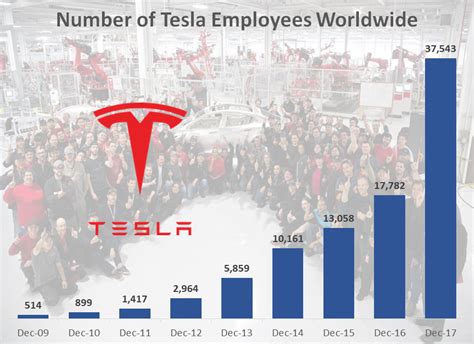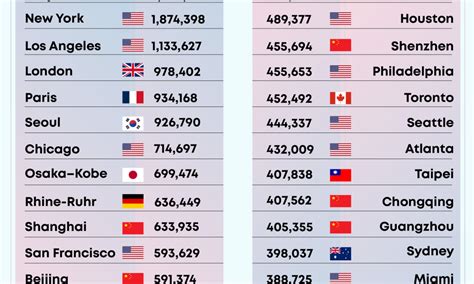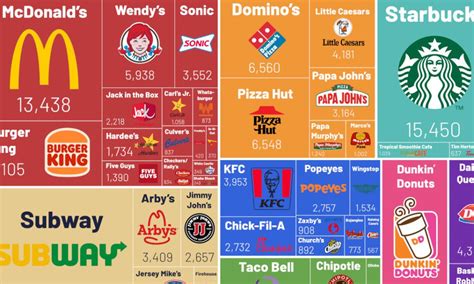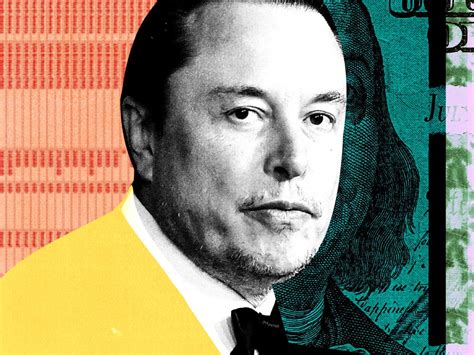
Tesla’s compensation strategy, heavily reliant on stock options, allows employees to potentially amass significant wealth tied to the company’s performance, but also presents a financial gamble dependent on sustained growth and Musk’s leadership. While base salaries might lag behind industry averages, the allure of equity grants attracts talent willing to bet on Tesla’s future.
Tesla employees’ compensation packages differ markedly from traditional tech companies, emphasizing stock options over high base salaries, creating a high-risk, high-reward scenario. This compensation structure, championed by CEO Elon Musk, aims to align employee interests with the company’s long-term success, but it also introduces volatility and uncertainty into their financial well-being. While some employees have become wealthy through Tesla’s stock appreciation, others face the risk of their options becoming less valuable or even worthless if the company’s performance falters.
Tesla’s compensation model contrasts sharply with established tech giants like Google, Apple, and Microsoft, which generally offer more competitive base salaries and a smaller proportion of compensation in stock. This makes Tesla attractive to risk-tolerant individuals who are confident in the company’s growth trajectory and Musk’s leadership. However, it can also deter those seeking more stable and predictable income.
“Tesla tries to pay top of market rates for exceptional talent but depending on the role Tesla also uses equity as part of its compensation,” one former Tesla employee said. This philosophy, while potentially lucrative, necessitates a deep understanding of stock options and a willingness to accept the inherent risks associated with them. The success of this model hinges on Tesla’s continued innovation, market dominance, and overall financial health.
The reliance on stock options has both advantages and disadvantages. On the one hand, it conserves cash for the company, allowing it to invest more aggressively in research and development, expansion, and other growth initiatives. On the other hand, it can lead to higher employee turnover if the stock price stagnates or declines, as employees may seek more stable compensation packages elsewhere. Moreover, it creates a culture where employees are highly incentivized to focus on long-term value creation, but it also adds pressure and can increase stress levels.
Elon Musk’s own compensation package is famously structured around achieving ambitious milestones, further reinforcing the company’s performance-driven culture. This top-down approach sets the tone for the entire organization, where employees are expected to think like owners and contribute to Tesla’s overarching goals.
However, critics argue that this compensation model can be exploitative, particularly for lower-level employees who may not fully understand the intricacies of stock options or have the financial cushion to withstand potential losses. They also point out that the value of stock options is subject to external factors beyond an employee’s control, such as market fluctuations and macroeconomic conditions.
The long-term implications of Tesla’s compensation strategy are still unfolding. As the company matures and faces increasing competition, it may need to adjust its approach to attract and retain top talent. The balance between stock options and base salary will likely evolve as Tesla navigates the challenges of scaling its operations and maintaining its competitive edge.
Digging Deeper into Tesla’s Compensation Structure
Tesla’s compensation packages typically consist of a base salary, stock options (also known as equity grants), and benefits. The relative proportion of each component can vary significantly depending on the employee’s role, experience, and performance.
-
Base Salary: While Tesla aims to pay competitive salaries, reports suggest that its base salaries are often lower than those offered by comparable tech companies. This is particularly true for entry-level and mid-level positions. The rationale behind this approach is that employees can offset the lower base salary with the potential upside of stock options. However, this requires a long-term perspective and a belief in Tesla’s future prospects.
-
Stock Options: Stock options give employees the right to purchase Tesla shares at a predetermined price (the “strike price”) after a certain vesting period. The vesting period is typically four years, with a portion of the options vesting each year. If the market price of Tesla shares rises above the strike price, the employee can exercise the options and sell the shares for a profit. The potential profit can be substantial if Tesla’s stock price increases significantly. However, if the stock price remains below the strike price, the options become worthless. This makes stock options a risky but potentially rewarding form of compensation.
-
Benefits: Tesla offers a range of benefits to its employees, including health insurance, paid time off, retirement plans (such as 401(k)s), and employee discounts on Tesla products. These benefits are generally comparable to those offered by other tech companies.
The Allure and Risks of Stock Options
The allure of stock options lies in their potential to generate significant wealth. Employees who joined Tesla early on and received stock options have seen their net worth increase dramatically as the company’s stock price has soared. This has created a culture of excitement and optimism among Tesla employees, who are highly motivated to contribute to the company’s success.
However, stock options also come with significant risks. The value of stock options is directly tied to Tesla’s stock price, which can be volatile and unpredictable. Factors such as market conditions, competition, and regulatory changes can all impact Tesla’s stock price. If the stock price declines, employees’ stock options may become less valuable or even worthless.
Moreover, stock options are subject to taxes. When an employee exercises stock options, they are required to pay income tax on the difference between the market price and the strike price. This can create a significant tax burden, particularly if the employee exercises a large number of options at once. Employees also need to consider the capital gains tax implications when they eventually sell the shares.
Comparing Tesla’s Compensation to Other Tech Companies
Tesla’s compensation model differs significantly from that of many other tech companies. While some tech companies also offer stock options, they typically place a greater emphasis on base salaries and other forms of compensation, such as bonuses and restricted stock units (RSUs).
RSUs are similar to stock options, but they are less risky because they are granted to employees without requiring them to purchase shares at a predetermined price. RSUs vest over time, and when they vest, the employee receives actual shares of stock. This means that employees who receive RSUs are guaranteed to receive some value, even if the stock price declines.
Companies like Google, Apple, and Microsoft typically offer more competitive base salaries and a greater proportion of compensation in RSUs than Tesla. This makes them attractive to employees who are seeking more stable and predictable income. However, the potential upside of stock options can be greater than that of RSUs, particularly if the company’s stock price increases dramatically.
The Impact on Employee Morale and Retention
Tesla’s compensation model can have a significant impact on employee morale and retention. On the one hand, the potential for significant wealth creation can boost employee morale and create a sense of ownership and commitment to the company. On the other hand, the risks associated with stock options can create anxiety and uncertainty, particularly if the stock price stagnates or declines.
Employee retention can also be affected by Tesla’s compensation model. Employees who are confident in Tesla’s future prospects may be more likely to stay with the company, even if the base salary is lower than that offered by other companies. However, employees who are risk-averse or who are not confident in Tesla’s future prospects may be more likely to seek employment elsewhere.
Tesla has faced criticism in the past for its high employee turnover rate. Some former employees have cited the company’s demanding work environment, long hours, and relatively low base salaries as reasons for leaving. However, Tesla has also made efforts to improve employee morale and retention, such as increasing base salaries, offering more comprehensive benefits, and providing opportunities for career advancement.
Elon Musk’s Influence on Tesla’s Compensation Philosophy
Elon Musk’s personal philosophy and management style have a significant influence on Tesla’s compensation strategy. Musk is a strong believer in aligning employee interests with the company’s long-term success. He believes that stock options are the best way to achieve this alignment, as they incentivize employees to think like owners and contribute to the company’s overarching goals.
Musk’s own compensation package is famously structured around achieving ambitious milestones. He receives no salary or cash bonus. Instead, he is granted stock options that vest only if Tesla achieves certain market capitalization and operational targets. This aligns his interests with those of shareholders and reinforces the company’s performance-driven culture.
Musk’s leadership has also played a role in creating a culture of innovation and risk-taking at Tesla. Employees are encouraged to think outside the box, challenge conventional wisdom, and take calculated risks. This culture can be both rewarding and demanding, but it has also contributed to Tesla’s success in developing innovative products and disrupting the automotive industry.
The Future of Tesla’s Compensation Strategy
As Tesla continues to grow and mature, its compensation strategy may need to evolve. The company faces increasing competition from established automakers and new electric vehicle startups, which may put pressure on its ability to attract and retain top talent.
Tesla may need to increase base salaries and offer more competitive benefits to remain competitive in the labor market. It may also need to consider offering a greater proportion of compensation in RSUs or other forms of equity that are less risky than stock options.
However, Tesla is unlikely to abandon its emphasis on stock options entirely. The company’s culture is deeply rooted in the belief that stock options are the best way to align employee interests with long-term success. Tesla will likely continue to use stock options as a key component of its compensation packages, but it may need to adjust the balance between stock options and other forms of compensation to remain competitive and retain its employees.
Legal and Ethical Considerations
Tesla’s compensation structure, like that of any publicly traded company, is subject to various legal and ethical considerations. These include ensuring compliance with securities laws, tax regulations, and labor laws. Transparency and fairness in compensation practices are also crucial for maintaining employee trust and avoiding potential legal challenges.
Stock option grants must be carefully structured to comply with regulations governing insider trading and market manipulation. The timing and disclosure of option grants are closely scrutinized by regulators to prevent abuse.
From an ethical standpoint, companies have a responsibility to ensure that their compensation practices are fair and equitable. This includes providing employees with clear and understandable information about their compensation packages, as well as ensuring that stock option grants are distributed fairly across different levels of the organization. Concerns about income inequality and the concentration of wealth have led to increased scrutiny of executive compensation and the use of stock options.
The Role of Performance Reviews
Performance reviews play a crucial role in determining employee compensation at Tesla. Employees who consistently exceed expectations are more likely to receive larger stock option grants and higher base salary increases. Tesla’s performance review process is designed to identify and reward high-performing employees who are making significant contributions to the company’s success.
Performance reviews typically involve a combination of self-assessments, manager evaluations, and peer feedback. Employees are evaluated on a variety of factors, including their technical skills, teamwork abilities, and contribution to overall company goals.
The results of performance reviews are used to inform compensation decisions, as well as to identify areas where employees may need additional training or development. Tesla invests heavily in employee training and development programs to help its employees improve their skills and advance their careers.
The Importance of Financial Literacy
Given the complexity of Tesla’s compensation model, financial literacy is essential for employees. Employees need to understand how stock options work, how they are taxed, and how they can be used to build long-term wealth. Tesla provides resources and educational materials to help its employees improve their financial literacy.
Employees are encouraged to seek professional financial advice to help them make informed decisions about their stock options and other financial matters. Financial advisors can help employees develop a personalized financial plan that takes into account their individual circumstances and goals.
The Broader Economic Impact
Tesla’s compensation strategy has implications beyond the company itself. The wealth created by stock options can have a significant impact on the local economies where Tesla employees live. As employees exercise their stock options and sell their shares, they may invest in real estate, start businesses, or donate to charitable causes. This can create jobs, stimulate economic growth, and improve the quality of life in local communities.
However, the concentration of wealth in the hands of a few individuals can also exacerbate income inequality. This is a growing concern in many countries, and policymakers are exploring ways to address it, such as increasing taxes on high-income earners and implementing policies to promote economic mobility.
Frequently Asked Questions (FAQ)
1. How does Tesla compensate its employees?
Tesla primarily uses a combination of base salary, stock options, and benefits to compensate its employees. While base salaries are reported to be competitive, they may be lower compared to other major tech companies. The key differentiator is the emphasis on stock options, which allow employees to purchase Tesla shares at a predetermined price.
2. What are the advantages and disadvantages of Tesla’s compensation model?
- Advantages: Aligns employee interests with the company’s long-term success, conserves cash for investment in growth, and creates a performance-driven culture.
- Disadvantages: Lower base salaries compared to some competitors, reliance on volatile stock market performance, potential for higher employee turnover if the stock price stagnates, and can create financial uncertainty for employees.
3. How do Tesla’s stock options work?
Tesla grants stock options to employees, giving them the right to purchase company shares at a specific price (strike price) after a vesting period (typically four years). If the market price exceeds the strike price, employees can exercise the options and sell the shares for a profit. If the market price is below the strike price, the options are worthless.
4. How does Tesla’s compensation compare to other tech companies like Google or Apple?
Companies like Google and Apple typically offer more competitive base salaries and a greater proportion of compensation in restricted stock units (RSUs), which are less risky than stock options. Tesla focuses more on stock options to incentivize long-term growth, which can be more lucrative if the company performs well but carries higher risk.
5. What is Elon Musk’s role in Tesla’s compensation philosophy?
Elon Musk strongly believes in aligning employee interests with the company’s long-term success through stock options. His own compensation is entirely based on achieving ambitious milestones, which reinforces a performance-driven culture throughout the organization. He believes employees should think like owners, contributing to the company’s overarching goals.









